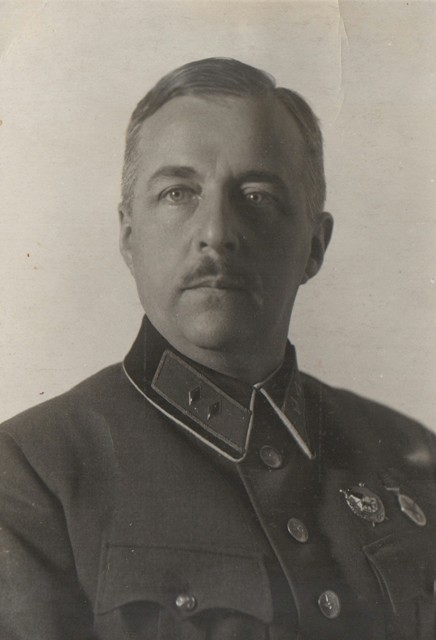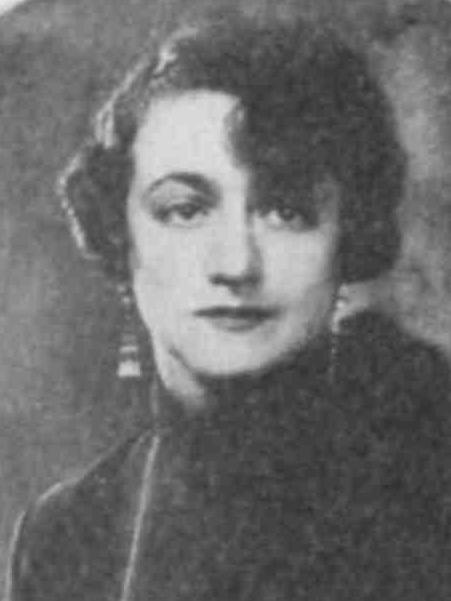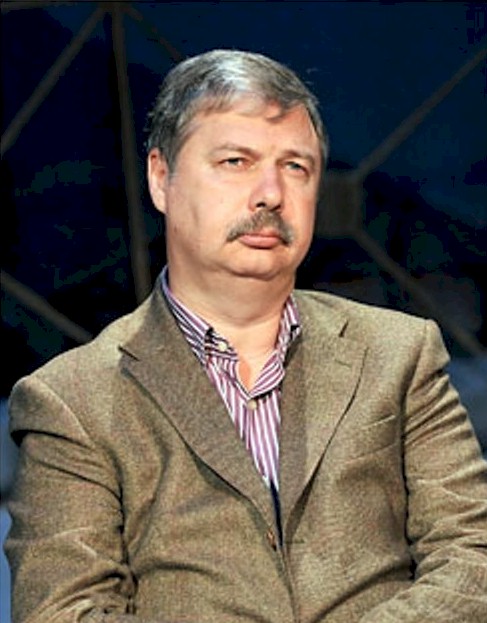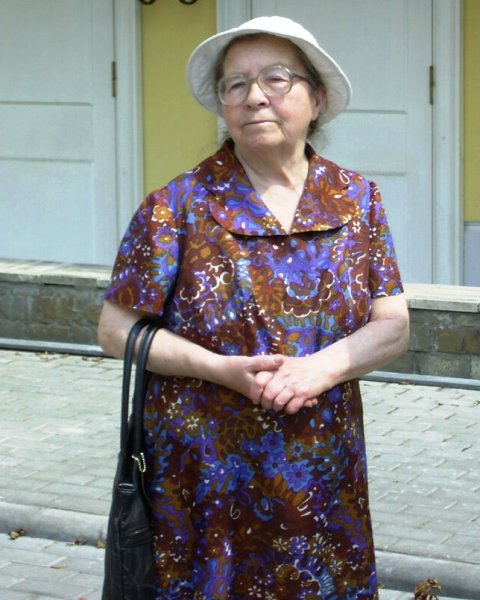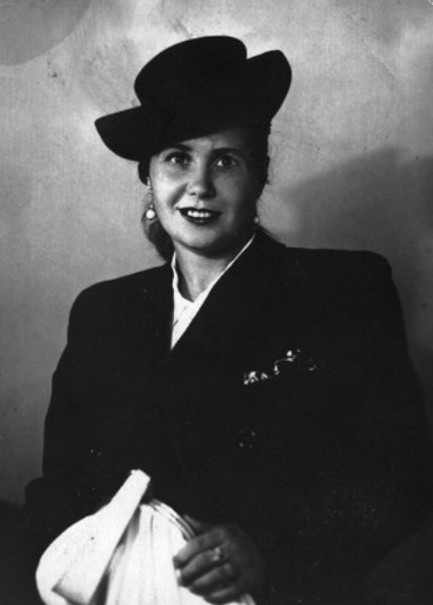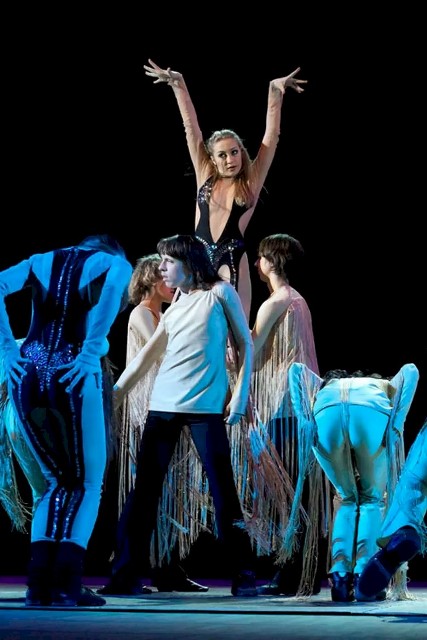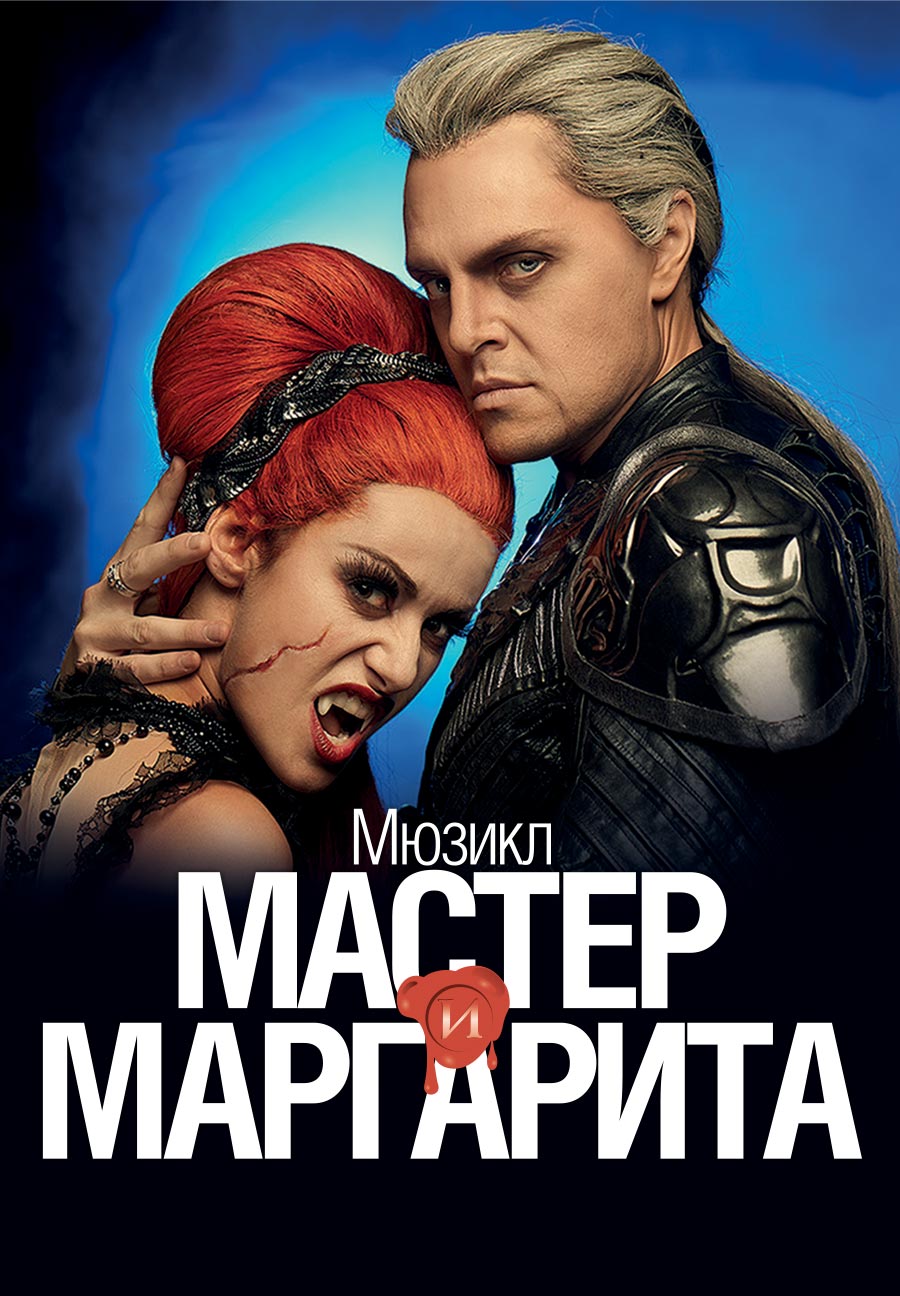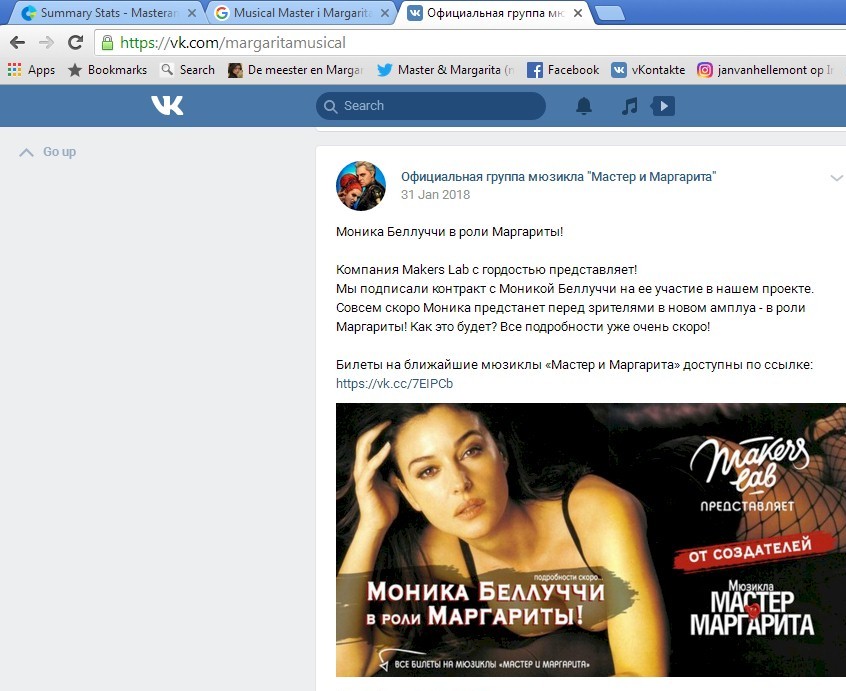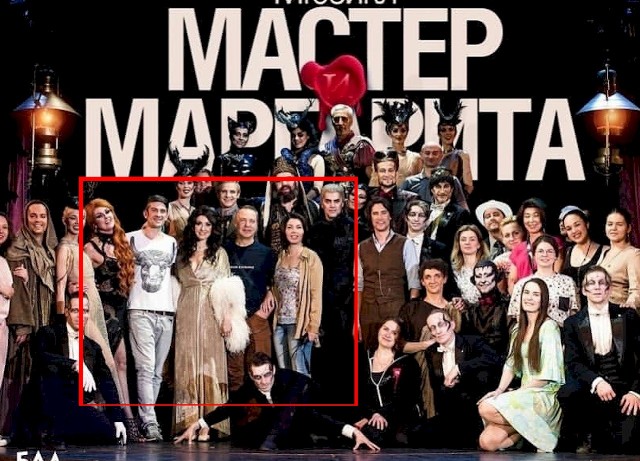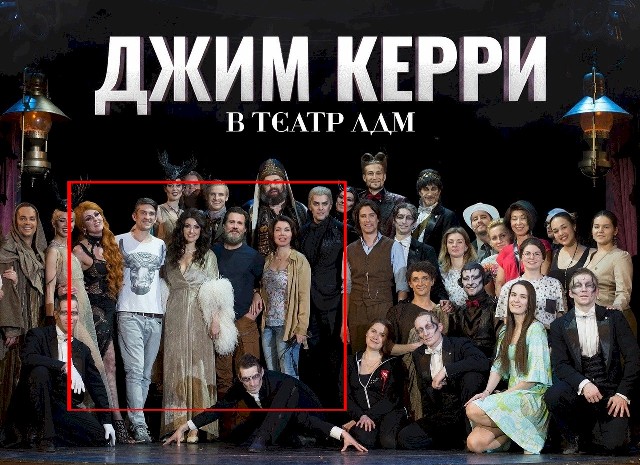Авторские права
Русский > Адаптация > Фильмы > История > Авторские права
In 1994, when Yuri Kara's film Master i Margarita was completed, a new character suddenly appeared on the scene. He would make sure that many translators and artists working on The Master and Margarita would have sleepless nights and that they would forget their dreams of turning the novel into a film, a play, an opera or a musical. That character was Sergey Sergeevich Shilovsky (°1952), a grandson from Yelena Sergeevna's second marriage, who had managed to acquire the copyrights for Mikhail Bulgakov's works.
Producer Irena Mineeva of the production company TAMP was quite amazed: «By the time Mr. and Mrs. Shilovsky came to claim their rights, the copyrights that were transferred to Elena Sergeevna had already expired and were not included in the hereditary mass. It is not clear how they obtained a certificate of inheritance of these rights».
The Mr. and Mrs. Shilovsky to whom Mineeva refers are Sergey Sergeevich Shilovsky (°1952), son of Sergey Yevgenevich Shilovsky (1926-1977), the youngest son of Yelena Sergeyevna and her second husband, and Daria Yevgeneva Shilovskaya (°1970), the granddaughter of Yevgeny Yevgenevich Shilovsky (1921-1957), the eldest son of Yelena Sergeevna and her second husband.
At that time, the Russian artistic all-rounder Anastas Alexeevich Mikoyan (°1951), better known by his pseudonym Stas Namin, also thought about adapting The Master and Margarita into a film. The project failed because he was told that the heirs had already sold the copyrights to the film adaptations. «It turned out that the rights belonged to a young man, who had already sold them to three different companies. And as soon as one of them tried to do something, the other two sued him», Namin complained. That young man was the same Sergei Shilovsky mentioned above, and from this moment on, the tone was immediately set for the bizarre career path of a reincarnation of the character of Nikanor Ivanovich Bosoy from The Master and Margarita, who excels above all in overestimating his own talents.
Azazello's Cream
When Yuri Kara started work on his film in 1992, the Russian Copyright Act of 1964 provided a general copyright term of 25 years from the first publication of a work. If a work was published after the author's death, this right was limited to a period of 15 years from posthumous publications. After that, the work belonged to the public domain. At the time Yuri Kara started his film, the novel The Master and Margarita, first published in 1966-1967, belonged to the public domain and no copyright was owed for a film adaptation.
In 1993, the Russian Federation introduced a new copyright law. It provided for a general term of copyright of 50 years after the death of an author. For works published posthumously, copyrights were determined up to 50 years after publication. However, at the time this law was introduced, Yuri Kara's film was already completely finished. Two versions were registered at that time: one of 205 minutes and one of 118 minutes. However, Shilovsky managed to postpone the screening of Kara's film until 2011.
As a clarification: no one is discussing the fact that Sergey Shilovsky and Daria Shilovskaya are entitled to their grandmother's inheritance. What is disputed is the opinion that the copyrights of Bulgakov's works were part of this legacy. But that is up to lawyers to find out.
Anyway, what is most important right now is the fact that Sergey Shilovsky in particular is often very aggressive and that his demands are more than once very outrageous. When his grandmother died on July 18, 1970, Sergey didn’t claim any copyrights on Bulgakov’s works , Daria wasn’t even born, and Bulgakov’s works were public domain. The «heirs» only came foreward when the 1993 law was enacted and Yuri Kara’s film was to be released.
When Varvara Mikhailovna Svetlaeva (1929-2014), the daughter of Bulgakov's sister Yelena and Irina Leonidovna Karum (1921-2005), the daughter of Bulgakov's sister Varvara, disputed Shilovsky's claims to the copyrights, Sergey Sergeevich Shilovsky spoke rather disparagingly about them: «Why do the nieces need their uncle's inheritance anyway? They are middle-aged women, to say the least, and neither of them have any children or grandchildren». He never explained why he himself needed the inheritance of the ladies' uncle.
In his own words, Shilovsky wants to ensure that the adaptations of The Master and Margarita «are completely in line with the original, unlike some of Bulgakov's current interpretations». In practice, however, it seems that in particular the amount of the copyright he receives must be «completely in line» with his expectations. In addition to the high prices he is asking, he annoys a lot of people with his attempts to get a finger in the pie with the production, unhampered by his lack of talent. Sometimes he tries to play a part in the - bizarre - choice of the actors, or he just tries to get his name on the bill as a «consultant». Therefore, he invokes his «concern to preserve the integrity of Bulgakov's cultural heritage».
Shilovsky's reputation among publishers, translators, composers and other artists is nicely expressed in a statement made by Diana Lewis Burgin on April 23, 2014. Burgin translated The Master and Margarita in 1989 for the publishing house Ardis Publishers, together with Katherine Tiernan O'Connor. She said: «From bitter personal experience and hearsay, few people want to touch anything to do with Bulgakov because of the so-called Bulgakov family (mafia) copyright issues. Believe me, we (Prof. O’Connor and myself) have had to turn down several very worthy proposals because of these bandits».
Ardis Publishers had serious issues with Sergey Shilovsky and Daria Shilovskaya when they published an e-book version of Burgin's translation of The Master and Margarita in 1994. They had already paid for the copyright in 1989, but the Shilovsky's were of the opinion that an e-book is a new medium, and that they had to be paid separately for it. They sued Ardis before the US District Court for the Southern District of New York. But the court ruled that, «since the conversion of the translation from a print version to an e-book format involves nothing more than copying, it is not an original work of authorship and is not a derivative work».
More complaints about the attitide of the Shilovsky’s often recur in artistic circles: when the American composer Raymond Luedeke (°1944) wanted to write an opera based on The Master and Margarita in 2013, he was told that he had to pay Shilovsky a sum of 250,000 dollars for the copyrights. That is ten times more than what the average composer in New York gets paid for writing an opera. In addition, he has to pay all his costs for transport and accommodation during the preparation himself.
Another example is the ballet performance The Master and Margarita, which was to be danced on December 4, 2011 in Krasnoyarsk by the local Jazz Ballet of Valery Borisovich Teryoshkin (°1952) to celebrate Bulgakov's 120th birthday. The performance was not a retelling of the novel's plot at all.
Olga Gennadievna Sergeeva (1964-2019), Teryosshkin's wife, had created an allegory in which she had been inspired by the novel to portray three aspects of love: the joyful love, the dark love, and the love which sells its soul, the children of the ballet school would dance on music by Igor Kornelyuk, the composer of the soundtrack of the TV series Master i Margarita by Vladimir Bortko. Just before the premiere, Shilovsky informed the organisers that he, as Bulgakov's heir, had not given permission for this performance and that he would have it banned. Unless… they would show money. It is not known how much money Shilovsky wanted, but Olga Sergejeva said that it was «an obscene amount».
Director Vladimir Bortko was not kind to Shilovsky neither. When his first attempt to make a screen adaptation of The Master and Margarita failed due to copyright issues, he said in an interview with Vremiya Novostey in May 2001: «I don't know what this Shilovsky has to do with the writer. But he managed to acquire the rights. He registered a patent for the trademark 'Master and Margarita' in 42 classes of the international classification. So, as from March 1st, Russian women can use the Azazello rejuvenating cream, or the Woland perfume... This is no joke, this is all officially written, signed and stamped. There will be a collection of wines 'Master and Margarita', an illustrated magazine and much more. This is what it all gets to. Imagine: a man wrote a philosophical novel during twelve years, and it all ends with Azazello cream. Bulgakov is probably turning in his grave. »
Shilovsky always unabashedly introduces himself as внук Михаила Булгакова [vnuk Mikhail Bulgakova] or the grandson of Mikhail Bulgakov. His paternal grandfather, however, was Yevgeny Alexandrovich Shilovsky (1889-1952), the second husband of Shilovsky's grandmother. His maternal grandfather was one Grigory Brodsky, the father of Shilovsky's mother Elizaveta Grigorievna Brodskaya (°1925-2003). So there is no blood relationship whatsoever between Bulgakov and Shilovsky.
When confronted with this, Shilovsky argues his claim as a «grandson» by saying that Bulgakov had adopted his father. He said it, for example, in an interview he gave on April 9, 2011: «Bulgakov had no children, but he adopted my father, who was then 7-8 years old». But that is not really in line with the truth. Bulgakov never adopted Sergey Yevgenevich Shilovsky (1926-1977). That wouldn't have been wise, by the way. Bulgakov himself was well known, but certainly not rich, while Yevgeny Alexandrovich Shilovsky, Sergey Yevgenevich's real father, was a lot more prosperous as a lieutenant general of the Red Army.
Finally, one last example that shows how Shilovsky's concern to ensure that the adaptations of the novel are «completely in line with the original» is often subordinate to monetary gain or to the man's ambition: the musical Master i Margarita in Saint Petersburg.
On September 18, 2014, this musical premiered in the Music-Hall in Saint Petersburg. It is a megalomaniac production that in many aspects is not at all «completely in line with the original». The makers pay a lot of attention to fanfare and glitter, but little to substance.
Shilovsky's «concern about preserving the integrity of Bulgakov's cultural heritage» apparently disappeared like snow in the sun when the premiere of this musical was announced through a huge media campaign. With this musical, Shilovsky had finally succeeded to get his name on the credits of a prestigious adaptation of The Master and Margarita, and not just as a consultant. No, Bulgakov turned out to have passed on his literary talent to his self-proclaimed grandson, because Shilovsky was mentioned in the programme brochure as one of the six librettists of the musical.
So, the fans of Bulgakov could remain assured, because «the integrity of the cultural heritage» of the author was kept intact. It is doubtful whether Sergey Shilovsky wrote even one word of the libretto himself, because in an interview published on the day of the premiere on the news portal Nevskye Novosti, he toned down his role considerably. He said that the five other librettists had sent him their lyrics, and that he had «corrected» them.
On many Russian internet forums there we could find hilarious reactions to the way in which the musical in Saint Petersburg was presented. Especially the gaudy photos on the posters had to suffer, but also Andrey Anatolyevich Noskov (°1972), one of the directors, Irina Guseynovna Afanasyeva (°1968), one of the librettists, and Olga Borisovna Tomas-Bosovskaya, one of the composers, were frequently brushed aside by bloggers and forum members.
Noskov was doubted whether he had enough weight to direct a project like this, Irina Afanasyeva was not only commented on «her remarkable biography», but many bloggers also wondered whether she even had enough intellectual capacity to read The Master and Margarita, let alone to understand it, let alone to write a libretto for it. Tomas was mainly mocked for being rather pompously presented in the announcements of the musical as «the composer of Her Majesty the Queen of Great Britain». In reality, Tomas had once dedicated some of her own compositions to the British royal family, and in 2009 she was able to shake hands with the Queen and personally offer her a CD with her compositions at a reception on the occasion of the 50th anniversary of a charity institution.
In Saint Petersburg, the shows are still often sold out, but, according to the portal site Fontanka.ru, that only has to do with cleverly inflated hype. «Go and have a look», they wrote, «but forget about Bulgakov», and they may well be right. It's like watching the Eurovision Song Contest, but seeing the same (Finnish) group and listening to the same (Moldavan) song all of the time. There are people who like to do that, but I'm not one of them.
The producers of this musical are regularly in the news for not so nice reasons. Several times they spread messages in a rather bombastic way that later turn out to be untrue. In 2015, they announced an American version of the musical on Broadway, in 2016 it was announced that the American actor Kevin Spacey (°1959) would play a role in the musical. In both cases it turned out to be fake news.
Two years later, on January 31, 2018, they proudly announced that they had signed a contract with Italian actress and model Monica Bellucci (°1964) to play the role of Margarita. And in February 2019, a contract would have been signed with Canadian-American actor Jim Carrey (°1962), who would play the role of Woland. None of this turned out to have any ground of truth. Furthermore, in the announcements about Monica Bellucci and Jim Carrey, they had photoshopped Carrey's face on old posters from the musical to make the announcements look real. You can see the photoshop result on the photos on the right side of this page.
With this musical, Shilovsky went one step further in his megalomania, to the extent that he really started to annoy people. In the press releases he suddenly turned out to have changed his name to Sergey Bulgakov-Shilovsky. That was a bridge too far for some Russian pressmen, and he was soon nicknamed «son of Lieutenant Schmidt» [1].
Incidentally, it is curious that Shilovsky now appropriates the name of a family, while previously he spoke so derogatoryly about the real scions of that same family - the ladies Varvara Mikhailovna Svetlaeva and Irina Leonidovna Karum (see above).
The fall of an empire
In 2017, the Russian film producer Svetlana Migunova-Dali and the American film producer Grace Loh announced that they had acquired the rights to an English-language film adaptation of The Master and Margarita. Two years later, they announced that they had an agreement with the renowned director Baz Luhrmann to make it happen.
Click here to read more on the project of Migunova-Dali and Loh
But in 2024, the film distribution company Luminosity Pictures wanted to release Michael Lockshin’s film The Master and Margarita in the United States, which Migunova-Dali and Loh wanted to prevent because they believed they owned the rights. On February 11, 2025, Luminosity Pictures filed a lawsuit against both Migunova-Dali and Loh at the California Central District Court to lift their block.
The impact of the court's ruling may be broader than the interests of the distributor, and could make an kill Sergei Shilovky's golden goose, since Luminosity Pictures argues that the novel The Master and Margarita is in the public domain, and that therefore no one can claim rights to it. If the court follows this reasoning, anyone who wants to make an adaptation of the novel in the future - film, theatre, opera or whatever - would be freed for good from the suffocating claims of Sergei Shilovsky, Bulgakov's self-proclaimed «grandson».
A strange observation I made: one of the co-producers of Lockshin’s film is Amedia Productions, a company owned by Leonard Blavatnik. This billionaire, born in Odesa (Ukraine), is also the owner of Warner Music, one of the largest music publishers in the world. Blavatnik is number 27 on the Forbes list of the world's richest people.
And now pay attention: one of the co-producers of the project of Migunova-Dali and Loh is Baz & Co, a company with which Baz Luhrmann also realized his ffilm Moulin Rouge! And who do we find as the founder of that company? Indeed, the same Leonard Blavatnik who is also involved in Lockshin's film.
It could well be that Sergei Shilovsky has shot himself in the foot by selling the film rights to both projects. Woland's revenge?
[1] The Children of Lieutenant Schmidt is a fictional society of swindlers which appeared in the 1931 satirical novel The Golden Calf written by Ilya Ilf (1897-1937) and Yevgeny Petrov (1903-1942).
The members of this organisation pose as children of Lieutenant Schmidt, a hero of the Russian Revolution of 1905. The Golden Calf is set in Russia in the 1920s, and its premise is that at the time, numerous fake relatives of Karl Marx, Prince Kropotkin and other revolutionary figures roamed the country, tricking gullible Soviet officials into giving them money. Their numbers grow, and to prevent any unlucky chance of spoiling each other's attempts, they «unionised», with Schmidt's Children being the most difficult to organise. When the latter finally convene, «it turned out that Lieutenant Schmidt had thirty sons, from 18 to 52 years in age, and four daughters, unattractive, and no longer young».
Since then, the expression Children of Lieutenant Schmidt has become a Russian cliché for various fraudulent enterprises and people who use false pretenses to get money, such as claiming to be a war veteran or a «Chernobyl liquidator».
Поместить эту страницу |
